July 2025 Community Newsletter
Find out why Jakarta EE is still the smartest choice and learn about the Eclipse Migration Toolkit for Java.
Find out why Jakarta EE is still the smartest choice and learn about the Eclipse Migration Toolkit for Java.
Debugging UI just got a lot easier - the AI-powered Theia IDE now supports direct image input, letting you show bugs instead of explaining them. See how a simple screenshot can help the AI instantly identify and fix visual issues in your app.
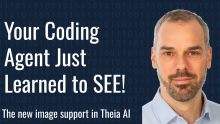
As we dive into the summer months, we’re combining our June and July updates into a single post, because June was packed.
Committers are welcome to share their needs and priorities in our annual satisfaction survey to help us enhance our open source community!
Eclipse RCP tools are moving to the web, bringing both big challenges and huge opportunities. This article outlines key strategies, pitfalls to avoid, and practical steps to ensure your migration is smooth and future-proof.
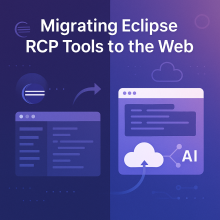
Learn how to make your custom AI Copilot truly interactive with clickable links, diagrams, and deep integration right inside Eclipse Theia AI. This quick tutorial shows you how to turn static AI responses into dynamic, domain-aware tools that boost productivity.
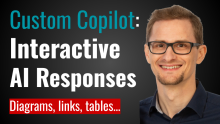
Struggling to turn AI coding hype into real team productivity? This article introduces Dibe Coding, a lightweight, structured workflow that helps development teams collaborate effectively with AI - beyond one-off prompts and into scalable enterprise practice. The process is natively supported by the AI-powered Theia IDE.
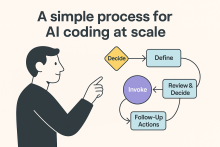
What began as an academic prototype has, over the years, grown into a mature, open-source framework for distributed industrial automation based on IEC 61499.
The article introduces Canonical's new builds of OpenJDK, offering enterprise-grade security, extended support, and timely access to new Java releases. A key highlight is the rigorous testing process: Canonical's OpenJDK builds are rigorously tested against the Technology Compatibility Kit (TCK) using the Eclipse AQAvit by Adoptium testing framework to ensure their correctness across various architectures and Ubuntu LTS versions.
The new Eclipse SUMO release brings new output formats (parquet and csv) and fixes many bugs. It also prepares a future change in the default departSpeed and departLane of vehicles by providing options to set the respective default.
Whether you are an experienced developer or new to the ecosystem, Initiative 31 aims to make Eclipse an OS-agnostic IDE.
Your organisation can play a leading role in making open source a shared experience. Check out Gaël Blondelle's new blog post to find out why you should sponsor OCX26.
The Eclipse SDV Hackathon is back! This time, it’s happening in two cities simultaneously, from 30 September to 2 October, 2025. Registration is now open.
Eclipse RCP has served mission-critical applications for decades, but the shift toward web-first technologies is accelerating - and it's time to prepare. This article offers a clear-eyed look at why now is the ideal moment to begin planning your migration, with insights from seasoned experts.
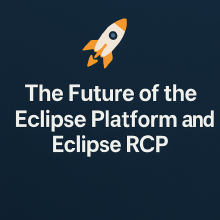
Eclipse Theia 1.63 is a massive update packed with 99 improvements, introducing autonomous AI agents, image input support, and AI-driven end-to-end testing tools for next-gen IDE and tools development. Whether you're building cloud-based tools or integrating AI into your workflows, this release is a must-read for developers and tech leads.
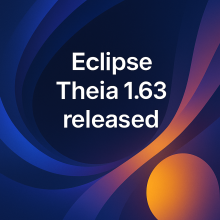
The MacStadium team recently connected with George Adams and Stewart Addison from Adoptium as they shared their Orka experience and use case.
On 24 June at the Automotive Electronics Congress, 11 of Europe’s biggest automotive companies signed a Memorandum of Understanding to collaborate on open source automotive software under the governance of the Eclipse Foundation and the SDV Working Group.
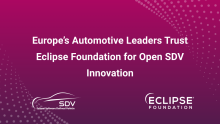
Meet Elena Gantner from Mercedes-Benz Tech Innovation, committer to the Eclipse S-CORE project and emerging voice in the SDV space.
The 2025 edition of the Eclipse Embedded and IoT developer survey is now underway! Take the survey now – it only takes a few minutes. Your insights and opinions will help shape the future of Embedded and IoT systems. Let's make a difference together!
Join open source leaders, project maintainers, and institutional stakeholders in Brussels, 22–23 October 2025, for a unique opportunity to reflect on the first year of the Cyber Resilience Act and shape what comes next.